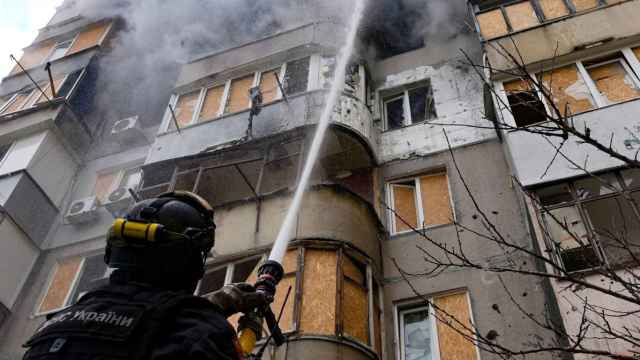The European parliament will not include a proposal to grant asylum to U.S. intelligence leaker Edward Snowden in a report on surveillance, though individual states might make their own decisions, a news report said.
"The European Union does not have the power to grant asylum as the European Union, so this is something for individual member states," Claude Moraes, a British member of the legislature from the Labor Party, said on Wednesday, euronews reported.
The asylum proposal was put forward by the European Green Party as an amendment to a report on the scale and the impact of mass surveillance, which gained international attention when Snowden leaked classified National Security Agency information last summer.
The proposed amendment said that parliament "calls on EU member states to drop criminal charges, if any, against Edward Snowden and to offer him protection from prosecution, extradition or rendition by third parties, in recognition of his status as whistleblower and international human rights defender," The Guardian reported.
German Green Party member and a co-author of the amendment, Jan-Philip Albrecht, said that rejecting the asylum call from the report on surveillance fallout was "ridiculous."
"The only reason for this whole thing is Snowden and now he doesn't get mentioned," Albrecht said.
The former defense contractor's lawyers confirmed that Snowden would be able to speak to the European Parliament via video link after a committee invited him to testify about the report, though the legislative body is still unsure what form the testimony could take.
Snowden is now living at an undisclosed location in Russia, where he received political asylum in August after a lengthy stay in the transit area of Moscow's Sheremetyevo Airport.
A Message from The Moscow Times:
Dear readers,
We are facing unprecedented challenges. Russia's Prosecutor General's Office has designated The Moscow Times as an "undesirable" organization, criminalizing our work and putting our staff at risk of prosecution. This follows our earlier unjust labeling as a "foreign agent."
These actions are direct attempts to silence independent journalism in Russia. The authorities claim our work "discredits the decisions of the Russian leadership." We see things differently: we strive to provide accurate, unbiased reporting on Russia.
We, the journalists of The Moscow Times, refuse to be silenced. But to continue our work, we need your help.
Your support, no matter how small, makes a world of difference. If you can, please support us monthly starting from just $2. It's quick to set up, and every contribution makes a significant impact.
By supporting The Moscow Times, you're defending open, independent journalism in the face of repression. Thank you for standing with us.
Remind me later.





